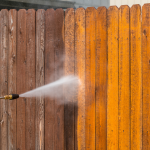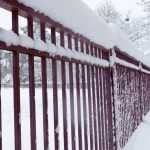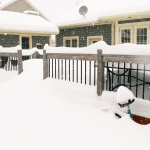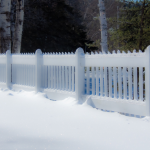No matter the time of year, there is always maintenance you can be performing on your fence. Whether it’s something as simple as raking leaves or something a bit more complicated like replacing a fence panel. Fence maintenance sometimes even needs to be done during those cold winter months. Here’s some fence maintenance to keep in mind this winter season.
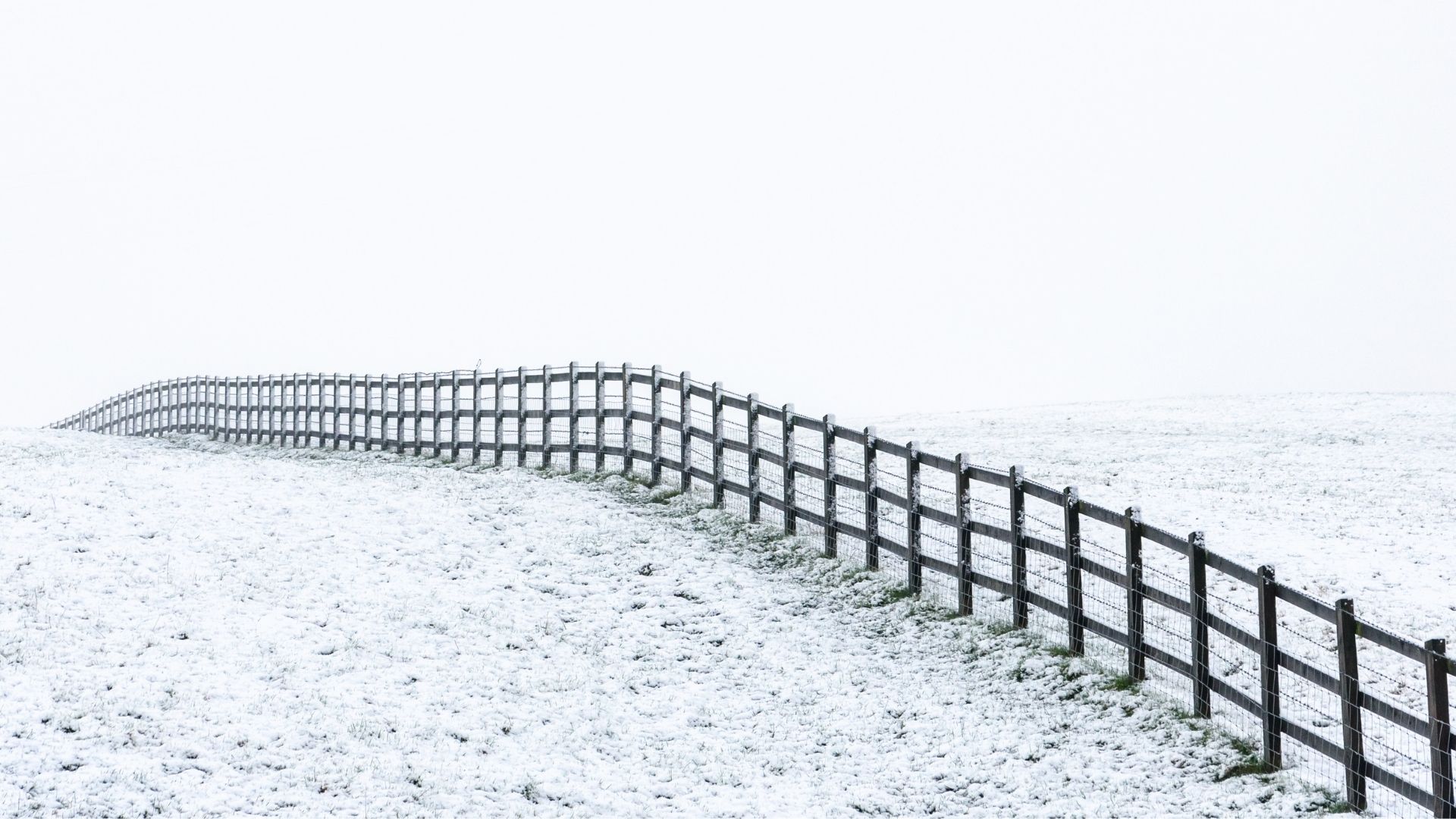
Don’t Let Leaves Pile Up
Depending on where you live, the seasons can all blur together. If this is the case where you live, you could still have leaves falling well into winter. It’s important that you keep leaves from piling up against your fence. Storms and high winds can cause leaves to congregate against your fence. That doesn’t mean you should leave them there.
If you have piles of leaves next to your fence, this can mean an increase in moisture. This can lead to rotting. Rot can make your wood fence lean or tilt. It can also lead to warping or rusting in other types of fence. Additionally, insects love to hide in piles of leaves and that can mean danger for your wood fence as well.
Trim Branches
The best time of year to trim any dead or rotting branches from your trees is during the winter months. Once all the leaves have fallen, it is much easier to identify that branches that need to be taken down. It is important to trim away these hazardous limbs before storms or strong winds hit. You wouldn’t want them to come crashing down on your fence or even your home. Although you can trim smaller trees and bushes by yourself, it is safer to hire a professional that will make sure the job is done right.
Shovel Snow Away
Just like with leaves, you don’t want snow piling up next to your fence. The increase in moisture can damage your fence, but it can also cause your cement footings to become cracked. If water works its way into those cracks and is then allowed to refreeze and thaw throughout the winter, the structural integrity of your fence posts will be compromised.
Not only is the increase in moisture bad for your fence, but the weight of the snow can be hazardous as well. If you have too much snow weighing against your fence, it could cause tilting or leaning. Worst case scenario, the fence panels will crack or become damaged. The best course of action is to shovel those snow drifts away from your fence after a storm. If you fence is near the road or your driveway, it can be easy to accumulate extra snow against your fence as well.
Avoid Attaching Things
Not only can snow accumulate up against your fence, but also on top of it. For this reason, we suggest you avoid attaching things to your fence. If you have a pool or shed located near your fence, it can be tempting to attach pool or lawn maintenance equipment to it. Even though this may make storing and using these tools more convenient during the warmer months, they can lead to unfortunate consequences during the winter.
Snow and ice can easily accumulate on these tools, adding unnecessary weight and stress to your fence. It is best to keep tools in your shed or garage over the winter. Not only will this help keep your fence in good condition, it will give your tools a break from harsh winter weather as well.
Be Aware of Shifting Soil
If you live somewhere with large swings in temperature, you need to be aware of shifting soil. The constant freeze and thaw of the ground, as well as harsher winter winds, can cause the soil around your fence posts to shift. Shifting soil can mean a few things for your fence. It could cause gaps to form underneath. These means that wildlife may have an easier time getting into your yard. If the gaps are large enough, your dog could even be able to squirm their way underneath. Shifting soil could also compromise your fence posts. This will lead to leaning or tilting, which could then lead to the complete collapse of your fence.
Complete Repairs ASAP
Winter can actually be a great time to fix your existing fence, or even install a completely new fence. Weather permitting! No matter the time of year, it is always important to complete any repairs or maintenance to your fence ASAP. Even if the damage was sustained before winter set in, the snow, ice, and harsh winds can exacerbate any cracks or damage. If snow is allowed to build up on any leaning or tilting fence panels, it could cause them to become damaged beyond repair.
Whatever damage your fence has sustained, no matter the season, it is always best to have a professional come out and take a look. They will be able to make sure the damage it repaired properly and keep your fence looking brand new season after season. If you are looking to repair your fence or want to request a quote on a new fence, contact Clarksville Fencing today!



